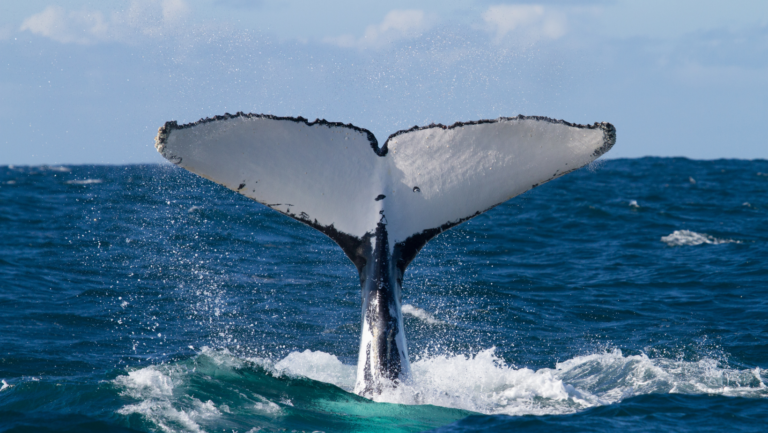Humpback Whales in the southwestern Indian Ocean undertake annual migrations in summer from the Antarctic/Southern Ocean feeding grounds into winter breeding grounds in the tropical and sub-tropical coastal waters of Mozambique, classified as the C1 Breeding Stocks.
Humpback Whales are considered to possess one of the most complex acoustic repertoires among Baleen whales, as male humpback whales are known to produce complex songs during the breeding season. Specifically, the C1 breeding stock in the Bazaruto Archipelago has never been acoustically researched. Today, humpback whales are listed as the least concerned by the IUCN as their population is increasing, with about 84,000 mature adults. Nevertheless, they still face many threats: entanglement by fishing gear, vessel collisions, human-caused noise and traffic disturbance, coastal habitat destruction, and climate change. Specifically, the Bazaruto archipelago is a developing area where a growing whale-watching industry exists alongside fishing activities. Moreover, the Bazaruto archipelago was previously a candidate for gas drilling.

Smart regulations that include bioacoustics for their determination are still lacking, as the national protocol of cetacean monitoring does not include any acoustic study recommendations.
To account for the lack of accessible, up-to-date data, Deep Voice and the BCSS embarked on three mutual collaborative expeditions. Using the BCSS expertise and experience, Deep Voice has learned much about the local humpback whale population in the Bazaruto archipelago area and recorded many hours of the local humpback song. In order to analyze these recordings efficiently, Deep Voice developed its AI-based detection algorithm on the local C1 humpback whales’ population vocalizations. Upon analysis of the data, Deep Voice and the BCSS plan to suggest acoustic-based recommendations for the local authorities to promise the long-term safety of the C1 population in the area.

Head Scientist

CTO